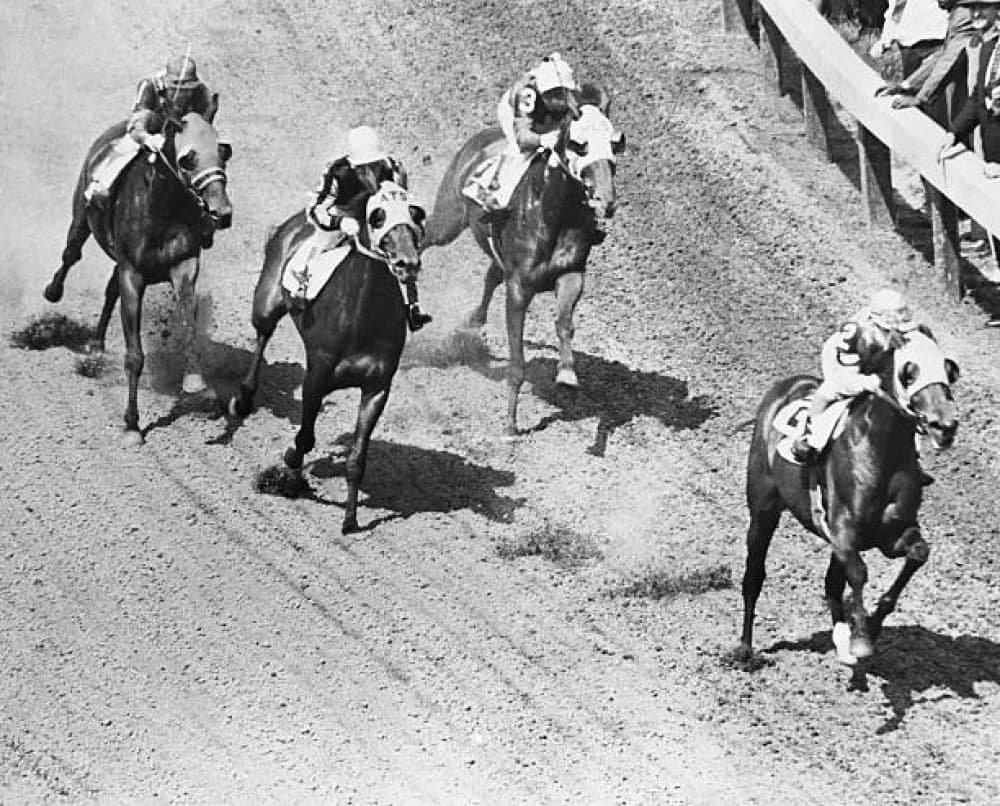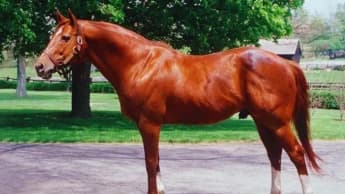Count Fleet: The Legendary Triple Crown Champion

Count Fleet remains a symbol of excellence in horse racing, celebrated for his undefeated record, outstanding performances in the Triple Crown, and enduring influence on future generations of racehorses.
Count Fleet, a renowned American Thoroughbred, was a racing phenomenon in the early 1940s, solidifying his status as one of the greatest racehorses in history. He was born on April 28, 1940, as a bay colt, the offspring of Reigh Count and the mare Quickly. While his early career hinted at great potential, it was during the year 1943 that he truly captivated the attention of the public. Under the guidance of the esteemed trainer John M. Gaver, Count Fleet demonstrated remarkable speed, stamina, and resilience, traits that distinguished him from his rivals and earned him acclaim as one of the sport's most outstanding competitors.
Count Fleet’s initial training and racing activities showcased his potential, but it was not until 1943 that he truly rose to prominence, achieving a level of dominance rarely seen in the history of horse racing. His career featured an undefeated season, a remarkable triumph in the Triple Crown, and numerous other significant victories, all of which secured his status as an icon in the realm of horse racing.
Key Achievements
Triple Crown Achievement (1943): Count Fleet's most significant accomplishment was his complete domination of the Triple Crown in 1943. His performances in the Kentucky Derby, Preakness Stakes, and Belmont Stakes were nothing short of remarkable. He secured victory in all three races by wide margins, frequently with apparent ease, solidifying his status as one of the most powerful contenders in the history of American horse racing. Notably, his victory in the Kentucky Derby was exceptional, as he won by an impressive 3 lengths and set a new record for the race at that time.
Undefeated in 1943: The 1943 season of Count Fleet is nothing short of legendary, not only for his remarkable Triple Crown triumph but also for his incredible feat of remaining unbeaten throughout the year. He secured victory in all 8 of his races that year, showcasing exceptional consistency and an outstanding ability to compete at the highest level across various tracks and distances. This achievement is particularly impressive considering the intense competition in major races during that time, further cementing Count Fleet's status as one of the most extraordinary racehorses to have ever raced.
Dominance Against Competitors: Although the Triple Crown represents the peak of achievement for any thoroughbred, Count Fleet's victories extended beyond these prestigious races. He also excelled in numerous significant events, such as the Wood Memorial Stakes, where he overcame some of the finest horses of his era, solidifying his reputation as the leading horse of his time. His success in a variety of race types highlighted both his adaptability and his superiority over other competitors.
Conclusion of Career and Retirement: Following his remarkable 1943 season, Count Fleet stepped away from racing due to health concerns. Despite competing for just a few years, his influence on the sport was substantial. His relatively short career has left a lasting legacy that continues to resonate with horse racing fans and professionals even today.
Statistics
|
Statistic |
Details |
|
Total Races |
21 |
|
Wins |
16 |
|
Place |
2 |
|
Show |
1 |
|
Earnings |
$1,125,475 |
Resilience and Comebacks
Although Count Fleet's career was relatively brief, it was not without its difficulties. In 1943, he was nearly unbeatable on the racetrack, yet he encountered various obstacles throughout his racing journey. One of the most significant challenges he faced was dealing with physical issues, such as leg injuries and the pressures of competing during a demanding season.
Despite facing various obstacles, Count Fleet showed remarkable resilience. His comeback narrative is particularly highlighted by his performances following his recovery from injuries, especially when he returned to compete at the highest level and succeeded in achieving his Triple Crown sweep. Many of his rivals anticipated that he would stumble at some point; however, Count Fleet consistently outperformed them, often by significant distances, demonstrating that he was not just an extraordinary physical athlete but also a mentally strong contender.
Heritage
The legacy of Count Fleet goes well beyond his wins and statistics. He is celebrated as one of the most remarkable racehorses in history, frequently mentioned alongside other icons such as Seabiscuit, Secretariat, and Man o' War. His extraordinary dominance in 1943, coupled with his triumph in the Triple Crown, solidified his status as a legendary figure in horse racing. In recognition of his profound influence on the sport, he was inducted into the National Museum of Racing and Hall of Fame in 1955.
Count Fleet's impact extended beyond his competitive days on the racetrack and into the breeding arena. His lineage has played a significant role in shaping subsequent generations of racehorses, imparting essential qualities such as speed, endurance, and resilience to many offspring. Although he may not have been as prolific a sire compared to some contemporaries, Count Fleet's heirs have upheld his legacy and played a vital part in the ongoing advancement of thoroughbred racing.
Future Perspectives
Although Count Fleet's career was cut short due to health issues, his legacy continues to motivate horse racing fans and trainers. Future racehorses will certainly be measured against Count Fleet regarding their competitive skills and resilience. As racing technology and knowledge advance, it is likely that new trainers and horses will emerge, sharing traits reminiscent of Count Fleet—such as speed, endurance, and the capability to overcome significant challenges in the sport. Despite the brief duration of his career, Count Fleet's impact on horse racing is profound, and his name will always be remembered in the annals of thoroughbred racing history.
Count Fleet’s remarkable achievements in 1943 set a high standard for excellence within the equestrian world. His victories are a testament to the timeless attributes that define a truly legendary horse: innate talent, unparalleled determination, and the bravery to confront challenges directly.






